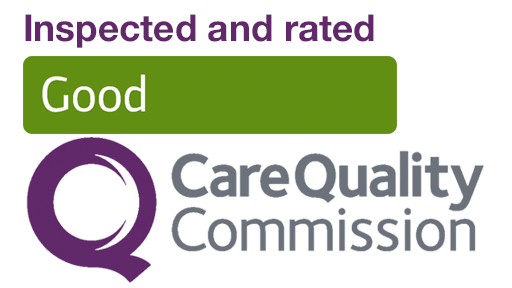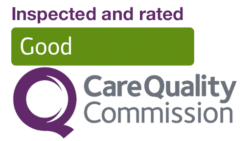
Navigating Care Options for Physical Disabilities
Navigating care options for a loved one with physical disabilities can feel overwhelming. Every individual has unique needs, and choosing the right support to ensure comfort, safety, and independence is essential. Physical disabilities can impact mobility, self-care, and daily routines, often requiring personalized care solutions. This guide is here to help you explore and understand different care options, assess what might work best for your loved one, and find a solution that enhances their quality of life.
Understanding Physical Disabilities and Their Care Needs
A physical disability is any condition that limits a person’s physical abilities, making daily tasks challenging. Physical disabilities can stem from various conditions, including injuries, chronic illnesses, and genetic disorders. Common physical disabilities include spinal cord injuries, cerebral palsy, multiple sclerosis, and arthritis. Each condition presents unique challenges, but the goal of care remains the same: to support individuals in living as independently and comfortably as possible.
UK At-Home Care
If you are in Bolton, Wigan, or Bury, we can help your loved one thrive with our at-home care services.
Contact a Right Care Team MemberKey Areas of Care for Individuals with Physical Disabilities
When considering care for someone with a physical disability, it’s important to focus on areas such as:
- Mobility Assistance: Supporting individuals in moving around their home, getting in and out of bed, and using assistive devices.
- Personal Care: Help with dressing, bathing, grooming, and other hygiene-related tasks.
- Daily Living Activities: Assistance with cooking, eating, household chores, and other daily tasks.
- Medical Needs: Monitoring health, managing medications, and assisting with any specialized medical care.
- Emotional and Social Support: Encouraging mental and emotional well-being by offering companionship, engagement, and community interaction.
Types of Care Options for Physical Disabilities
There are multiple care options for individuals with physical disabilities, each with unique benefits. The right choice depends on the person’s level of independence, health needs, and personal preferences.
1. In-Home Care Services
In-home care, also known as domiciliary care, allows individuals to receive support while remaining in their own homes. This option is ideal for those who value independence and wish to live in familiar surroundings. In-home care providers can assist with tasks like personal care, meal preparation, medication reminders, and light housekeeping.
Benefits of In-Home Care:
- Allows individuals to stay in a familiar environment
- Reduces the need for relocation to a facility
- Provides one-on-one, personalized support
- Allows for flexibility in care hours and services
- Can be more affordable than residential care for part-time support
In-home care is flexible and can be tailored to fit a person’s specific needs, ranging from a few hours per day to 24-hour support.
2. Assisted Living Facilities
Assisted living facilities are residential communities designed for individuals who need some assistance but do not require round-the-clock medical care. These facilities typically offer housing, meals, and access to support services, such as help with personal care, transportation, and medication management.
Benefits of Assisted Living:
- Provides a supportive community environment
- Offers social and recreational activities
- Ensures that help is available at all times
- Reduces household responsibilities, such as cooking and cleaning
- Ideal for those who value community engagement
Assisted living may not be suitable for individuals with severe mobility limitations or complex medical needs, as these facilities typically offer a moderate level of assistance.
3. Nursing Homes or Skilled Nursing Facilities
Nursing homes provide a higher level of care than assisted living facilities. They are designed for individuals who need significant support with daily tasks and require regular medical supervision. Nursing homes have trained nursing staff on-site, which makes them ideal for people with complex health needs.
Benefits of Nursing Homes:
- Provides 24-hour medical support and supervision
- Ideal for individuals with complex or chronic medical conditions
- Offers physical therapy, rehabilitation, and other health services
- Ensures comprehensive assistance with daily activities
- Provides a structured environment with routine care
Nursing homes are generally better suited for individuals who need continuous medical care and support with all aspects of daily life.
4. Live-In Care
Live-in care involves having a caregiver reside in the individual’s home, providing round-the-clock support. This option combines the benefits of in-home care with the consistency and reliability of a full-time caregiver. Live-in care is an excellent choice for individuals who require extensive support but prefer to stay in their own homes.
Benefits of Live-In Care:
- Offers continuous, personalized care in a familiar environment
- Reduces the risk of accidents and provides immediate support if needed
- Allows for a consistent caregiver relationship, which can be comforting
- Supports independence while offering a high level of assistance
- Offers flexibility, as caregivers can adjust routines as needed
Live-in care provides comprehensive support for individuals who need regular assistance with mobility, personal care, and household tasks but value their home environment.
5. Day Care Centers for Adults
Adult day care centers offer part-time care and activities for individuals with disabilities. These centers provide a structured setting where participants can socialize, engage in activities, and receive care support during the day, allowing family caregivers to take a break.
Benefits of Adult Day Care:
- Provides a safe and supportive environment for part of the day
- Offers social activities and therapeutic programs
- Allows caregivers to work or take personal time
- Can include physical therapy, meals, and health monitoring
- Enhances social interaction and reduces isolation
Adult day care centers are often a good option for families who provide most care themselves but need a few hours of respite or support each day.
6. Respite Care
Respite care offers short-term relief for primary caregivers by providing temporary care for an individual with a disability. Respite care can be arranged at home, in a care facility, or through a specialized respite provider.
Benefits of Respite Care:
- Prevents caregiver burnout by allowing time for self-care
- Provides continuity of care when caregivers need a break
- Offers flexible options, ranging from a few hours to several days
- Can be customized to fit the individual’s specific needs
- Provides peace of mind knowing loved ones are in capable hands
Respite care is a valuable service for family caregivers, offering time to rest and recharge without compromising their loved one’s care.
Factors to Consider When Choosing a Care Option
Choosing the right care option requires careful consideration. Here are some essential factors to keep in mind:
1. Level of Care Needed
Assess your loved one’s level of care needs. Individuals with severe physical disabilities may require 24-hour support, while those with moderate disabilities might benefit from in-home or part-time support.
2. Budget and Financial Resources
Different care options vary significantly in cost. Consider your budget and explore financial resources, such as insurance coverage, government assistance, or disability benefits, to determine what’s affordable.
3. Social Preferences
Some individuals thrive in a social environment, while others prefer a more private setting. Assisted living and adult day care centers are great options for those who enjoy social interaction, while in-home care is ideal for those who prefer privacy.
4. Caregiver Support Availability
If family caregivers are available, in-home or respite care may be suitable, as they can provide part-time support. For families without a nearby support network, live-in care or residential facilities may be more practical.
5. Medical Needs
If your loved one has complex medical needs, nursing homes or skilled nursing facilities may be the best option. For individuals with basic medical requirements, in-home care or assisted living can provide adequate support.
How Right Care Supports Individuals with Physical Disabilities
At Right Care, we are dedicated to providing high-quality, compassionate care for individuals with physical disabilities. Our team understands the unique needs of each client, and we tailor our services to ensure comfort, safety, and independence.
Our Services Include:
- Personalized In-Home Care Plans: We design customized care plans that focus on each client’s specific needs and preferences.
- Trained Caregivers: Our caregivers are trained to assist with mobility, personal care, and health management, ensuring high-quality support.
- Flexible Scheduling: From part-time to 24-hour care, our flexible scheduling allows clients to receive the level of support they need.
- Companionship and Social Engagement: We provide companionship to promote mental and emotional well-being, offering support beyond physical needs.
Funding Options for Disability Care
Disability care can be costly, but there are resources to help ease the financial burden. Here are some common funding options:
1. Government Assistance Programs
Many countries offer financial assistance programs for individuals with disabilities, such as Personal Independence Payment (PIP) in the UK or Supplemental Security Income (SSI) in the US.
2. Private Health Insurance
Some private insurance plans cover part of the costs associated with home care or assisted living, depending on the plan and provider.
3. Long-Term Disability Insurance
For those with disability insurance, a portion of the care expenses may be covered. It’s essential to check the policy details.
4. Local Community Programs
Some local nonprofits and community organizations offer grants, subsidies, or low-cost services for people with disabilities.
5. Family Contributions
Many families work together to cover care expenses, pooling resources to provide quality support for their loved ones.
Tips for Family Caregivers
If you’re a family caregiver supporting a loved one with a physical disability, here are some tips to help you manage:
- Prioritize Self-Care: Taking care of your well-being allows you to provide better support.
- Create a Routine: Consistency can help your loved one feel more comfortable and reduce anxiety.
- Encourage Independence: Allow your loved one to do as much as they can independently to maintain their confidence.
- Use Assistive Devices: From mobility aids to reach tools, assistive devices can make daily tasks easier for both you and your loved one.
- Seek Support: Don’t hesitate to use respite care, support groups, or professional guidance when needed.
Navigating care options for physical disabilities requires understanding, planning, and compassion. By exploring various options such as in-home care, assisted living, live-in care, and respite care, you can find a solution that enhances the quality of life for your loved one. At Right Care, we are dedicated to providing personalized, compassionate support tailored to each client’s unique needs. Choosing the right care option empowers individuals with physical disabilities to live comfortably, safely, and with dignity.







